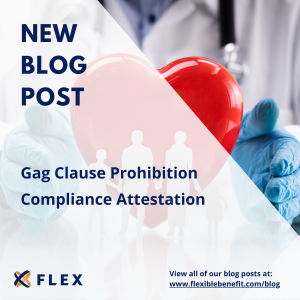group health plans
The Employee Retirement Income Security Act of 1974 (ERISA) requires plan sponsors of health and welfare benefit plans (e.g., medical, dental, vision, HRA, FSA) to provide a Summary Plan Description (SPD) to plan participants at certain times. An SPD is a written document that summarizes the material provisions of a plan and describes how the plan operates.
The Consolidated Appropriations Act of 2021 included a provision that prohibits group health plans and health insurance carriers from entering into agreements with a health care provider, network or association of providers, third-party administrator (TPA), or other service provider offering access to a network of providers that would directly or indirectly restrict a plan or issuer from:
Non-grandfathered health plans (i.e., health plans issued on or after March 23, 2010) are required to cover innetwork preventive services at 100% with no cost-sharing to a member. This is a requirement that was imposed by the Affordable Care Act (ACA). The preventive services that must be covered are specified by the Health Resources and Services Administration (HRSA), the United States Preventive Services Task Force (USPSTF), and the Centers for Disease Control and Prevention (CDC).
Health Savings Accounts (HSAs) have become a popular way to pay for out-of-pocket medical expenses and/or save for future medical expenses. HSAs are considered by many to be the “unicorn” of financial accounts. The primary reason for this claim to fame are the triple tax advantage features of HSAs.
The Affordable Care Act (ACA) created a research institute known as the Patient-Centered Outcomes Research Institute (PCORI). The goal of PCORI is to help patients and those who care for them make better-informed decisions about healthcare choices. PCORI is funded in part by fees which are charged to health plans. The following information is designed to help employers understand their upcoming payment obligations.
The Consolidated Appropriations Act of 2021 included a provision that requires brokers and consultants to disclose all direct and indirect compensation they expect to receive for group health plans. The disclosure is required when compensation is expected to be $1,000 or more, and the disclosure must be made prior to any contracts entered into, renewed, or extended on or after December 27, 2021. The disclosure requirements are now in effect.
Annual Medicare Part D reporting is required for all employers who provide health benefits with prescription drug coverage. The reporting is an online filing to the Centers for Medicare & Medicaid Services (CMS), and it lets CMS know if the prescription drug coverage available on the employer’s health plan is “creditable.”
Overview
Health Reimbursement Arrangements (HRAs) are self-funded group health plans that provide tax-free reimbursements to employees and their family members for out-of-pocket healthcare expenses.
On August 27, 2021, the State of Illinois passed a law called the Consumer Coverage Disclosure Act (CCDA). The CCDA requires a new written disclosure to be provided by every employer who has employees in the State of Illinois and who also provides group health insurance coverage to its employees.
At a glance, what employers expect from their benefits brokers and consultants hasn't changed dramatically in recent years. The expectations that top the list are largely the same from year to year.
However, a recent employee benefit trends report from MetLife takes a deeper dive into the responses of employers and employees to uncover insights into how expectations are evolving – and how brokers can deliver for their clients.









